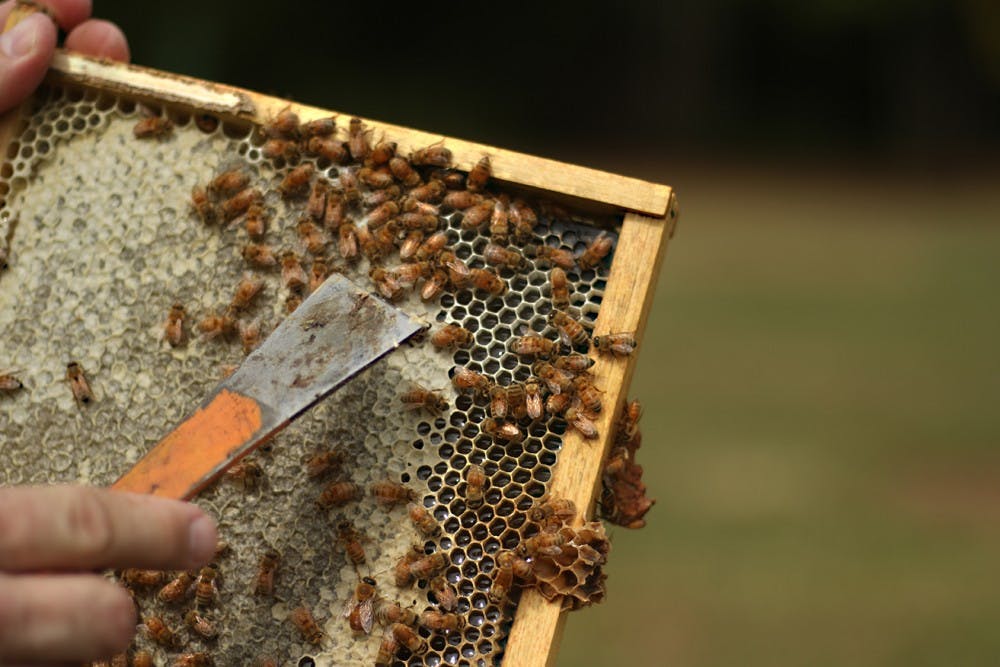The yellow-faced bee species are the first bee species to make the list. It became endangered due to habitat loss, wildfires and invasive non-native insects and plants, according to the Guardian.
Michael Adamson, former director of research at Chapel Hill Bees, LLC, said the Hawaiian species has nothing to do with the Italian honeybees in Chapel Hill.
Chapel Hill Bees went out of business four years ago because it’s impossible to raise bees without chemicals, Adamson said.
“We always said if we couldn’t raise bees without chemicals, then we wouldn’t do it,” he said.
Randall Austin, certified master beekeeper, said the endangered species in Hawaii doesn’t pertain to local bee species.
“The species in Hawaii doesn’t exactly have any relevance locally, but it does bring to mind things and so in that sense, it’s interesting,” Austin said.
Liz Lindsey, N.C. certified master beekeeper, said beekeepers should eliminate or lower the use of pesticides when raising bees.
“Most of the studies done on pesticides are done by the pesticide industry itself which has a bias to keep its products on the shelves,” Lindsey said. “We need more regulation by the FDA and EPA, which are funded by our tax dollars to ensure the protection of our food and our environment.”



